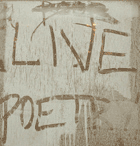(March 2005) Got tired last night, so am continuing yesterday’s ponderings this morning.
I am most at home outdoors, and especially by water, where I recognize connections between my self and the world around me. Yet I am rational enough to recognize that these connections are themselves an act of my imagination (even though they could also be a reality that I have just absorbed somehow).
Is it Merleau-Ponty who said my body is my presence in the world?
Anyway, I don’t buy that crap about humans having dominion over the earth and its species in accordance with some white-haired old rule-bound deity. Nor do I believe that humans have any special rights. Period. Instead, I see us as just one part of a larger whole.
Plus, take a look around. At best, the earth is indifferent to us; at worst, it should destroy us to save itself.
I have been trying to pay more attention to the words I use when I speak about nature and connections and wildness in general—in part, because I want to express myself as accurately as possible. But also because several writers I’ve read recently have made me recognize my need to do this.
David Abrams makes this good point in The Spell of the Sensuous:
in indigenous, oral cultures, . . . language seems to encourage and augment the participatory life of the senses, while in Western civilization language seems to deny or deaden that life, promoting a massive distrust of sensorial experience while valorizing an abstract realm of ideas hidden behind or beyond the sensory appearances.
Paula Gunn Allen, similarly, points out that,
in English, one can divide the universe into two parts: the natural and the supernatural. Humanity has no real part in either, being neither animal nor spirit—that is, the supernatural is discussed as though it were apart from people, and the natural as though people were apart from it. This necessarily forces English-speaking people into a position of alienation from the world they live in. Such isolation is entirely foreign to American Indian thought. At base, every story, every song, every ceremony tells the Indian that each creature is part of a living whole and that all parts of that whole are related to one another by virtue of their participation in the whole of being.
And Joy Harjo notes that
language is culture, a resonant life form itself that acts on the people and the people on it. The worldview, values, relationships of all kinds—everything, in fact, is addressed in and through a language.
The Great Chain of Being Theory, so popular in Shakespeare’s time, is based on inflexible hierarchies—humanity’s incorporeal intellect places us above corporeal things in a strict pecking order—yet this linear cosmology recognizes the interrelatedness of all things.
Shakespeare illustrates this inteconnectedness particularly well with the disruption of “natural” order—say, the disruption of a Danish king’s right to rule, which subsequently causes disorder in other arenas—that causes storms on promontories and so on, until the whole friggin' spheres are untuned.
(This is a big aside, but I just love the fact that humans once thought our universe could sing. Now we just wonder when we’ll blow ourselves up.)
Connections between humans and other species were once understood. J. Scott Bryson, for example, points out that the root of ‘animal’ speaks to this.
‘Animale’ (having the breath of life) is derived from ‘anima’ (life), which is derived from ‘animus’ (mind, spirit, soul).
Many native cultures believe that animals have souls. The blue cornmeal ritual that some hunters perform after killing a deer, for example, honors the animal’s spirit.
Stephen Whithed describes Wendell Berry’s work as poetry that “places value . . . on the restoration of a traditional understanding that measures value by a mutual interdependence” between self and world.
I don’t have much faith in this, but do hope that we can come to understand this mutual interdependence as a culture.
Here’s another point to ponder. Neil Evernden, in Creation, wrote that we will only change
once we accept, through the study of Nature, that all life is organically related, organically the same through the linkage of evolution, then humanity is literally a part of Nature. Not figuratively, not poetically, but literally an object like other natural objects.
All righty. I’ll close my meanderings with this quote:
The nearest thing I can imagine to what I would think of as a sound or even healthy approach and attitude toward existence as a whole (as distinct from the endless separation of the human species from the rest of existence that leads to evaluating the one at the expense of the other)—would be Blake’s ‘How do you know but ev’ry Bird that cuts the airy way, / Is an immense world of delight, clos’d to your senses five?’ It works both ways, one both can be and can never be the bird.—WS Merwin
LISTENING TO: Dar Williams’s “Wilder Than Her” ... (of course), but I could just as well have been listening to Beast of Burden


No comments:
Post a Comment